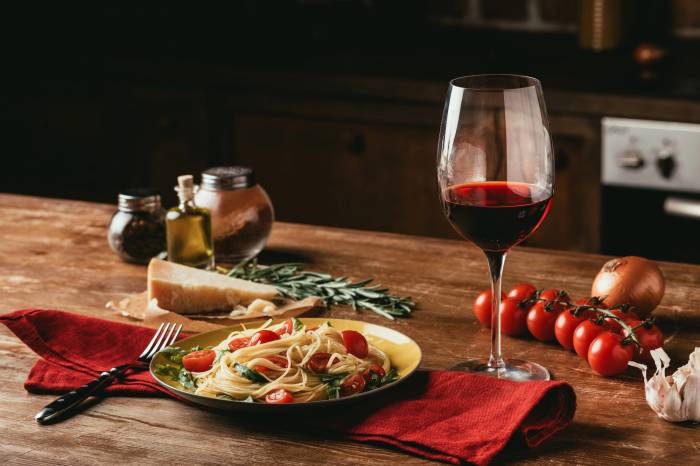
Italian wine producers are continuing to focus on the United States market, despite ongoing threats of tariffs and a climate of economic uncertainty. Since the start of the year, global trade has been affected by a series of tariff threats and policy changes from the U.S. administration, which have left many industries, including wine, facing unpredictable conditions. The Trump administration has repeatedly threatened to impose tariffs as high as 30 percent on products from the European Union and Mexico, with some proposals even suggesting a 200 percent tax on European wine. While these extreme measures have not all materialized, the uncertainty itself is causing significant concern among producers and importers.
Massimo Romani, CEO of Argea, a major Italian wine group with $534 million in revenue in 2024 and about a quarter of its production destined for the U.S., says that unpredictability is the biggest challenge. “The tariffs, if and when they appear, will be a problem,” Romani said. “But the more serious issue, by far, is uncertainty. If we know what we are facing, we can make plans.” This lack of clarity makes it difficult for everyone in the supply chain—from grape growers to distributors—to develop effective strategies.
The U.S. government has given leaders from the EU and Mexico until August 1 to reach an agreement that could prevent new tariffs from being imposed. However, many in the wine industry believe that simply shifting to new markets is not an option. The relationships between Italian producers and their American partners have been built over decades and cannot be easily replaced.
In 2024, Italy exported $2 billion worth of wine to the U.S., representing nearly one-quarter of its global exports and marking a 10 percent increase over the previous year. Despite the risks, many Italian wineries are doubling down on their commitment to the American market. Some are investing more resources and strengthening their distribution networks in anticipation of possible tariffs.
Stefano Casadei, founder of Famiglia Casadei, which produces 700,000 bottles annually with about 30 percent going to the U.S., explained that his company has taken proactive steps. “We have strategically strengthened our presence in the US through a targeted investment plan,” Casadei said. He emphasized working closely with importers and distributors to distribute any potential tariff impact evenly without compromising the value of their wines. Casadei’s three children are also involved in representing the family’s brands at trade fairs in the U.S., building new business relationships.
Personal connections play a role as well. The Cline Family, long-time importers for Famiglia Casadei, are also business partners at Tenuta Casadei in Tuscany. Casadei describes this relationship as one based on mutual trust and shared vision.
Other producers are adjusting their export strategies to manage risk. Riccardo Bogi, sales and marketing manager at Poggio Antico in Montalcino, said his company shifted away from using La Place de Bordeaux for exports at the end of 2024 and returned to direct importer relationships. This move allowed them to plan shipments ahead of time with their U.S. importer Monsieur Touton, helping avoid sudden price increases for consumers.
Despite stable profitability so far, Bogi acknowledges that ongoing tariff discussions could affect future sales volumes. Still, he considers the U.S. market essential due to its cultural ties with Italy and its sophisticated wine consumers.
To maintain their foothold in America, Italian producers are also launching new products tailored to changing consumer preferences. Argea recently acquired WinesU, an importer handling both Italian and French brands with $35 million in annual turnover. Romani believes this acquisition will help Argea stay close to retailers and consumers in the U.S., allowing them to respond quickly to trends.
Argea is also expanding into nonalcoholic wines under its Anthology label—a small but growing segment in the U.S.—and has already launched three such wines stateside. Famiglia Casadei is targeting younger American consumers with organic, biodynamic, vegan and low-impact wines. Their new Mi Place line—vegan wines with no added sulfites—launched this spring at Total Wine stores and has received strong interest.
Cultural connections between Italy and America remain strong beyond commerce. Every year, Casadei’s estates welcome more than 30,000 visitors—many from the U.S.—and host around 50 weddings annually for mostly American couples at Castello del Trebbio in Tuscany. Casadei sees this as evidence of a deep bond between Italian producers and American consumers.
Alessandro Pasqua, president of Pasqua USA, said that about 35 percent of his company’s production goes to America because it is a market where their most valuable products are well appreciated. Pasqua aims to reinforce his company’s presence in the U.S., seeing it as central to their global strategy.
While it remains difficult to predict how long current trade tensions will last or what form future tariffs might take, Italian wine producers appear determined to weather any challenges by leaning into their established relationships with American partners and adapting their offerings for evolving consumer tastes. For now, Italy’s commitment to the U.S. market remains strong despite ongoing uncertainty over tariffs and trade policy.
